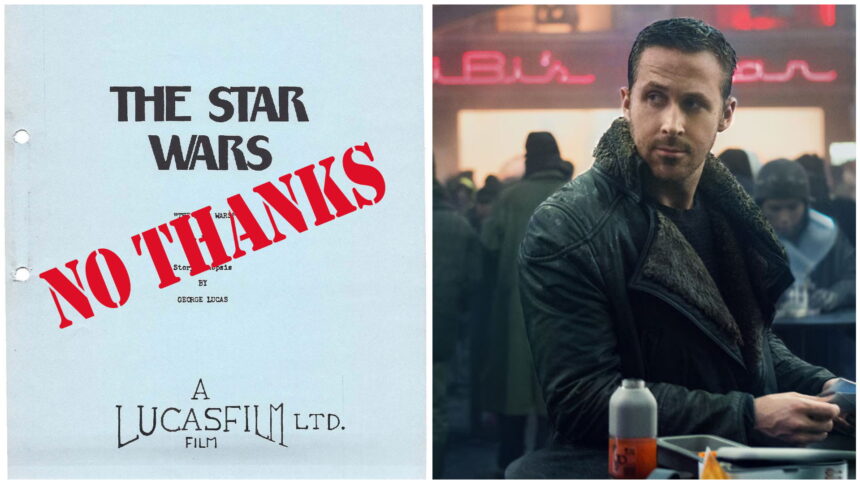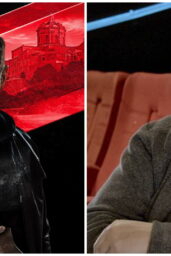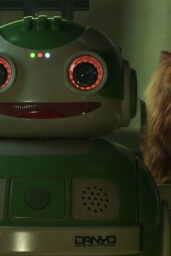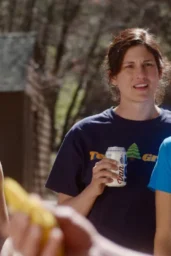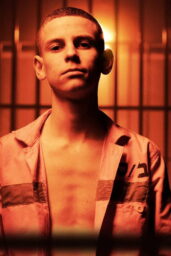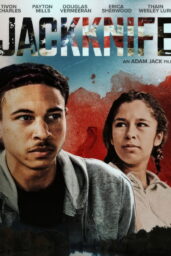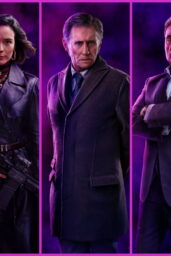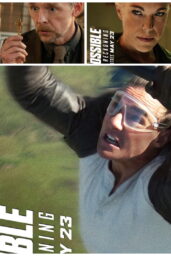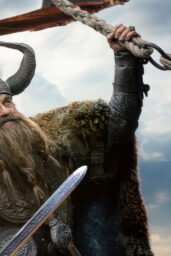In a galaxy not so far away, Shawn Levy's Star Wars: Starfighter is hitting turbulence before takeoff. With a string of A-list actors passing on key roles, the question arises: is the Force weakening for Hollywood's brightest stars? Reports indicate that Jesse Plemons, Jodie Comer, Greta Lee, Sarah Snook, and Mikey Madison—all approached for significant parts—said “thanks, no thanks” (World of Reel). Plot-wise, the film kicks off with a 15-year-old boy on a galaxy-saving mission alongside his uncle, played by Ryan Gosling, while being chased by a pair of villains—one male, one female, for that symmetrical Star Wars vibe. Set for a theatrical release on May 28, 2027, to coincide with the 50th anniversary of A New Hope, the project should be a magnet for talent. So why the hesitation? Buckle up—this is a deep dive into the casting conundrum, with a blend of curiosity and edge, unpacking the why, the what, and the what's next.
A Star Wars Stumble
Nothing prepared me for the news that Star Wars: Starfighter—a film backed by Lucasfilm's legacy and Shawn Levy's hot streak—was struggling to lock in its cast. It's like watching a TIE fighter sputter before it even leaves the hangar. Gosling, fresh off Barbie and Blade Runner 2049, is a major get, signaling the project's potential. Yet, the rejections from Plemons, Comer, Lee, Snook, and Madison raise red flags. Is this a one-off hiccup, or a sign that Star Wars is losing its gravitational pull? Let's unpack the data, the history, and the vibes.
Why the Cold Shoulder?
The casting woes of Star Wars: Starfighter seem to stem from a perfect storm of practical and perceptual issues. First, the budget. Unlike the galaxy-sized wallets behind The Force Awakens or The Last Jedi, Starfighter is reportedly operating on a leaner financial model (World of Reel). Less money means less glitz—fewer resources for elaborate sets, effects, or, crucially, actor compensation. Mikey Madison, riding high after her Oscar win for Anora, reportedly passed on her role for financial reasons, with sources noting the two sides were “far apart” on money (World of Reel). In an industry where paychecks reflect prestige, a tighter budget might make actors think twice.
Then there's the narrative context. Set approximately five years after The Rise of Skywalker, Starfighter lands in a post-Skywalker era that's still raw for fans (StarWars.com). The sequel trilogy—The Force Awakens, The Last Jedi, and The Rise of Skywalker—split audiences like a lightsaber through butter. Some praised its fresh faces; others decried its handling of legacy characters. The toxicity surrounding the franchise, amplified by social media and fan debates, has been well-documented. Actors, especially those with thriving careers, might hesitate to step into a project where fan backlash could overshadow their work. It's not just about the role—it's about the baggage.
The roles themselves might also be a factor. The plot centers on a 15-year-old protagonist and Gosling's uncle character, with two villains in pursuit. Supporting roles, even “important” ones, may lack the depth or screen time that stars like Comer or Snook demand. If the script leans heavily on the young lead or Gosling, other parts could feel like window dressing—hardly enticing for actors who can pick and choose their projects. Add to that the standalone nature of the film, which might limit future franchise opportunities, and the appeal dims further.
Historical Context and Industry Patterns
Casting challenges aren't new to Star Wars, but the current situation feels distinct. Let's rewind. In the prequel era, Leonardo DiCaprio was courted for Anakin Skywalker but declined, saying he “didn't feel ready to take the dive” (The Independent). Benicio del Toro was set to play Darth Maul in The Phantom Menace but walked away after most of his lines were cut, leaving the role to Ray Park. Jodie Foster, considered for Princess Leia, passed due to a scheduling conflict with Taxi Driver. Even Kurt Russell and Al Pacino turned down Han Solo, with Pacino reportedly finding the script too outlandish. These were high-profile rejections, but they were exceptions in a franchise that generally attracted talent like moths to a flame.
Fast-forward to the Disney era, and the dynamics have shifted. When Disney acquired Lucasfilm in 2012, the fanbase was split—some saw it as a creative boost, others as a corporate takeover (Bennett R. Coles). The sequel trilogy, while commercially successful, faced criticism for inconsistent storytelling. Solo: A Star Wars Story underperformed at the box office, and projects like The Acolyte have grappled with casting challenges, though successes like Lee Jung-jae's casting show it's not all doom and gloom (IGN). The broader industry has also changed. Streaming platforms like Netflix and prestige TV offer actors creative control and hefty paychecks. A Star Wars role, once a career pinnacle, now competes with projects that might offer more artistic freedom or less public scrutiny.
What makes Starfighter's situation significant is its timing. Coming off a decade of divisive Star Wars content, the franchise is at a crossroads. Lucasfilm president Kathleen Kennedy has acknowledged the “complex” challenge of evolving the saga while satisfying fans (MovieWeb). Actors, aware of this, might see Starfighter as a gamble—a chance to shine in a beloved universe, but also a risk of being caught in the crossfire of fan debates. Yet, Gosling's involvement suggests the project has legs. His star power, combined with Levy's recent triumph with Deadpool & Wolverine, could make Starfighter a turning point—if they can secure the right cast.
Star Wars in a New Hollywood
Star Wars remains a cultural juggernaut, but it's no longer the only game in town. Like a Netflix algorithm, Hollywood recycles ideas until they're stale, and actors are savvier than ever about their choices. They're not just chasing fame; they're chasing legacy. A role in Starfighter could be a career-defining moment, but it could also tie them to a franchise that's as polarizing as it is prestigious. Daisy Ridley, who played Rey, once noted struggling to find work post-Star Wars, highlighting the double-edged sword of franchise fame (Project Casting). For actors like Plemons or Lee, the calculus might favor projects with less baggage or more immediate payoff.
Still, there's hope. Levy and writer Jonathan Tropper have been crafting Starfighter for two years, and their track record—while mixed—shows they can deliver crowd-pleasers. Gosling's commitment is a vote of confidence, and the 2027 release gives them time to pivot. The standalone nature of the film, free from the Skywalker saga's weight, offers a chance to tell a fresh story. If Levy can nail the casting, Starfighter could soar like an X-wing. If not, it risks becoming another cautionary tale in Star Wars' Disney-era saga.
The Force Is Being Tested
As Star Wars: Starfighter gears up for production this fall, the industry watches closely. Will Levy overcome these casting woes, or is this a sign of changing tides in Hollywood's relationship with iconic franchises? You'll either love this or hate it—here's why: Star Wars is still a dream gig, but it's no longer a sure bet. Would you risk joining a galaxy far, far away, knowing the stakes? Comment below, and let's see if the Force is with you.
| Actor | Reported Reason for Declining | Notable Recent Work |
|---|---|---|
| Jesse Plemons | Unspecified | Civil War (2024) |
| Jodie Comer | Unspecified | The Bikeriders (2024) |
| Greta Lee | Unspecified | Past Lives (2023) |
| Sarah Snook | Unspecified | Succession (2018-2023) |
| Mikey Madison | Financial reasons | Anora (2024) |

